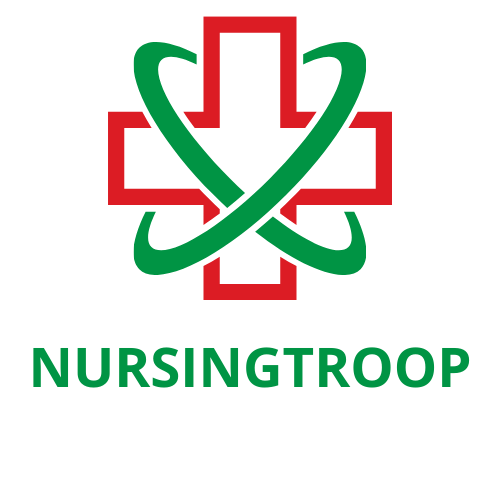To tackle the healthcare sector’s challenges, Quality Assurance Nurses play a key role in providing quality assurance to healthcare organizations. As the name implies, Quality Assurance Nurses are responsible for ensuring that the care provided is high quality and meets established standards. Qualify Assurance Nurse’s role is vital for the healthcare sector, as they are responsible for overseeing the performance of all nurses and other healthcare providers.
Table of Contents
What is a Quality Assurance Nurse?
A Quality Assurance Nurse is a type of nurse who specializes in verifying that healthcare facilities, products, and services meet specific standards. Quality Assurance Nurses typically work in hospitals, nursing homes, and other healthcare facilities to ensure that the care being provided is up to national standards.
What does a Quality Assurance Nurse Do?
A Quality Assurance (QA) Nurse is responsible for ensuring the highest quality of patient care by monitoring and evaluating healthcare services. This position requires an individual to review medical records, develop and maintain quality systems, and analyze data to identify improvement areas. The QA Nurse also enforces standards of practice established by regulatory agencies such as the Joint Commission on Accreditation of Healthcare Organizations (JCAHO) and Centers for Medicare & Medicaid Services (CMS).
They may be responsible for conducting audits, developing corrective action plans, and providing education and training to staff members. Quality Assurance Nurses are essential in protecting patient safety by identifying problems before they become severe or life-threatening. Additionally, they ensure the delivery of appropriate and cost-effective care while promoting positive outcomes and patient satisfaction.
What Unit is Quality Assurance Nurse?
Quality Assurance Nurses may be employed in hospitals, long-term care facilities, and other healthcare settings. They can serve as part of a quality assurance team or work independently to ensure compliance with established standards. Sometimes, they may also provide direct patient care and carry out their QA duties.
How to Become Quality Assurance Nurse?
Educational Eligibility:
Quality Assurance Nurses usually need an ADN or BSN degree in nursing. In addition, they must be licensed and certified as a Registered Nurses (RN) in the state where they intend to practice.
Experience:
Most employers prefer previous experience working in nursing; some may also require at least 2-3 years of experience in a clinical setting.
QA Nurse Certification:
Quality Assurance Nurses can become certified by taking the Certified Professional in Healthcare Quality (CPHQ) exam from the National Committee for Quality Assurance (NCQA). This certification requires understanding quality principles, standards, procedures, and policies.
Required Skills:
- Knowledge of healthcare policies, procedures, and regulations
- Good organizational and communication skills
- Ability to conduct audits and analyze data
- Familiarity with medical terminology
- Detail-oriented & problem-solving skills
- Computer proficiency in Microsoft Office Suite or other software applications.
Pros and Cons of Quality Assurance Nurse
Pros
- Assists in ensuring patient safety
- Collaborates with other medical professionals to improve the quality of care
- Opportunities for continuing education and professional growth
- High job satisfaction from helping others.
Cons
- Can be stressful due to the nature of the work and long hours needed at times
- May require travel to visit other facilities
- It can be challenging to hold others accountable for violations or mistakes.
Salary of Quality Assurance Nurse
According to the Bureau of Labor Statistics, the median annual salary for Quality Assurance Nurses is $71,000. Salaries may vary depending on experience, location, and the type of facility. In addition, some employers may offer bonuses and other incentives such as health insurance or retirement benefits.
Employment Outlook for Quality Assurance Nurse
The employment outlook for Quality Assurance Nurses is positive. The Bureau of Labor Statistics projects a 7% growth in demand for nurses through 2029, which is faster than average. As the population ages and healthcare becomes increasingly complex, there will be more need for nurses with quality assurance expertise to help ensure safe and effective care.
FAQs–
What are 4 types of quality control?
The four types of quality control are inspection, testing, audits, and process control.
Who is responsible for quality assurance?
Quality Assurance (QA) is the responsibility of all healthcare team members, including physicians, nurses, technicians, and administrators. The QA Nurse is vital in monitoring the quality of care provided.
What is the difference between Quality Assurance and Quality Control?
Quality Assurance (QA) focuses on prevention by ensuring that processes are in place to prevent errors from occurring in the first place. This includes developing policies and procedures and monitoring their implementation. Quality Control (QC) focuses on catching any errors that do occur and then taking corrective action. QC typically involves inspecting products, services, or processes to ensure they meet predetermined standards.
Final Words
Quality Assurance Nurses are a vital part of healthcare organizations striving to ensure the highest quality patient care. They are responsible for auditing, monitoring, and evaluating healthcare services to identify improvement areas and meet regulatory standards. To become a QA Nurse, individuals must possess clinical experience and a valid nursing license.
Mrs. Marie Brown has been a registered nurse for over 25 years. She began her nursing career at a Level I Trauma Center in downtown Chicago, Illinois. There she worked in the Emergency Department and on the Surgical Intensive Care Unit. After several years, she moved to the Midwest and continued her nursing career in a critical care setting. For the last 10 years of her nursing career, Mrs. Brown worked as a flight nurse with an air ambulance service. During this time, she cared for patients throughout the United States.
